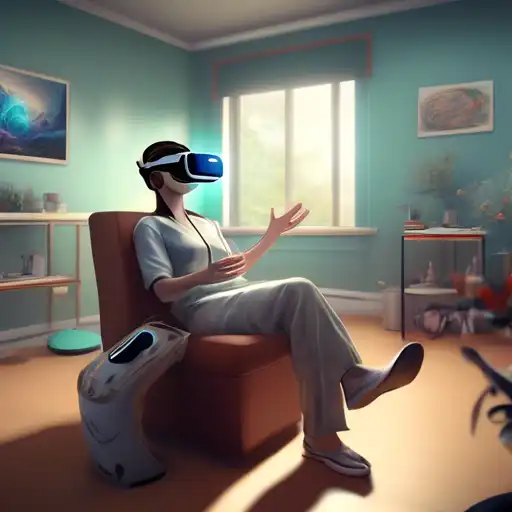The Transformative Power of Virtual Reality in Therapeutic Practices
Virtual Reality (VR) technology has transcended its initial entertainment purposes, paving the way for groundbreaking applications in therapy. This immersive technology is now being leveraged to treat a variety of psychological and physical conditions, offering patients a safe and controlled environment for healing and recovery.
Understanding VR Therapy
VR therapy involves the use of virtual reality simulations to create immersive experiences that can help individuals confront and overcome their fears, anxieties, and other mental health challenges. By simulating real-world environments, VR provides a unique platform for exposure therapy, cognitive behavioral therapy, and more.
Applications of VR in Therapy
The applications of VR in therapy are vast and varied. Here are some of the most notable uses:
- Exposure Therapy: VR is particularly effective in treating phobias and PTSD by gradually exposing patients to their fears in a controlled setting.
- Pain Management: VR has been used to distract patients during painful procedures, reducing their perception of pain.
- Rehabilitation: Stroke victims and individuals with physical injuries use VR to regain motor skills through interactive games and exercises.
- Social Skills Training: Individuals with autism spectrum disorder benefit from VR scenarios that teach social interaction and communication skills.
The Benefits of VR Therapy
VR therapy offers several advantages over traditional therapeutic methods. It provides a safe environment for patients to face their fears without real-world risks. Additionally, VR therapy can be tailored to each individual's needs, making it a highly personalized form of treatment. The immersive nature of VR also enhances engagement and motivation, which can lead to better therapeutic outcomes.
Challenges and Considerations
Despite its potential, VR therapy is not without challenges. The cost of VR equipment and the need for specialized training for therapists can be barriers to widespread adoption. There are also concerns about the long-term effects of VR use and the need for more research to fully understand its efficacy across different conditions.
The Future of VR in Therapy
As VR technology continues to evolve, its applications in therapy are expected to expand. Innovations in VR hardware and software will likely make therapy more accessible and effective. With ongoing research and development, VR has the potential to revolutionize the field of therapy, offering new hope for individuals facing mental health and physical challenges.
For those interested in exploring the intersection of technology and mental health further, consider reading about the impact of technology on mental health.
